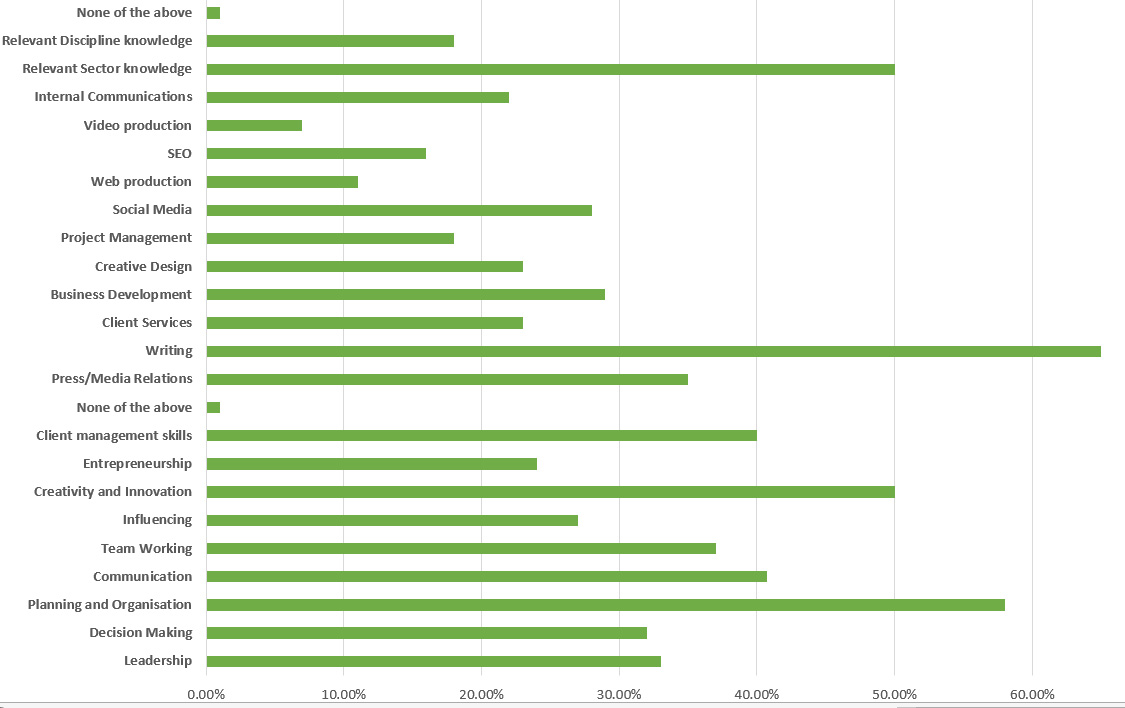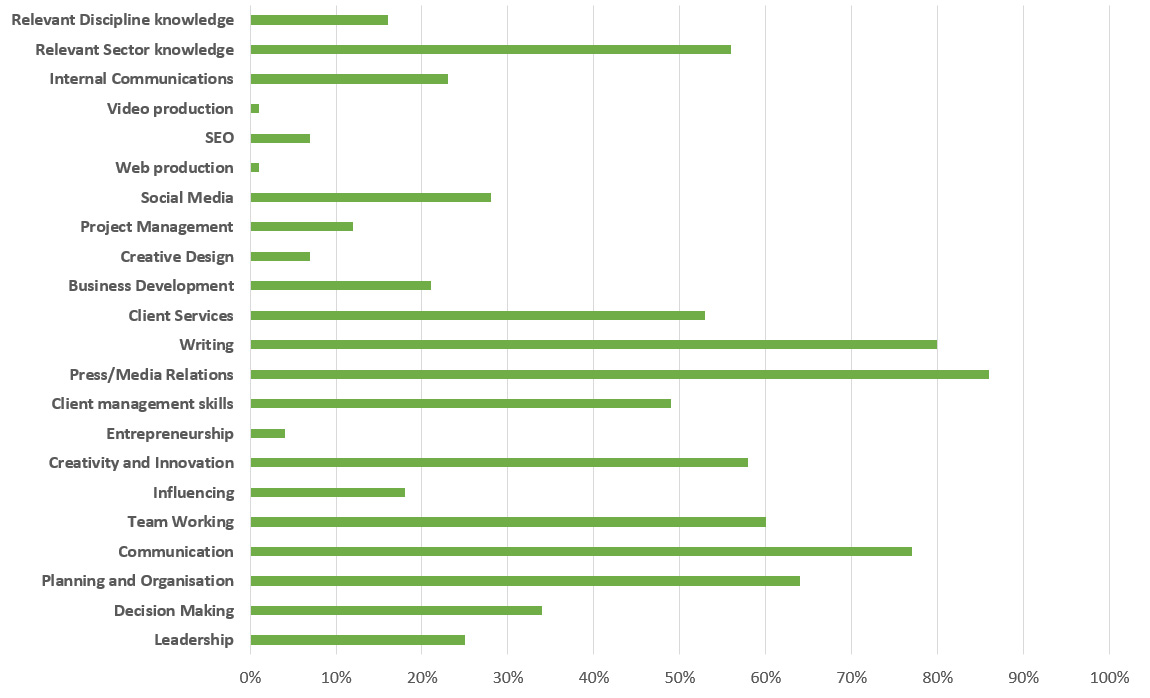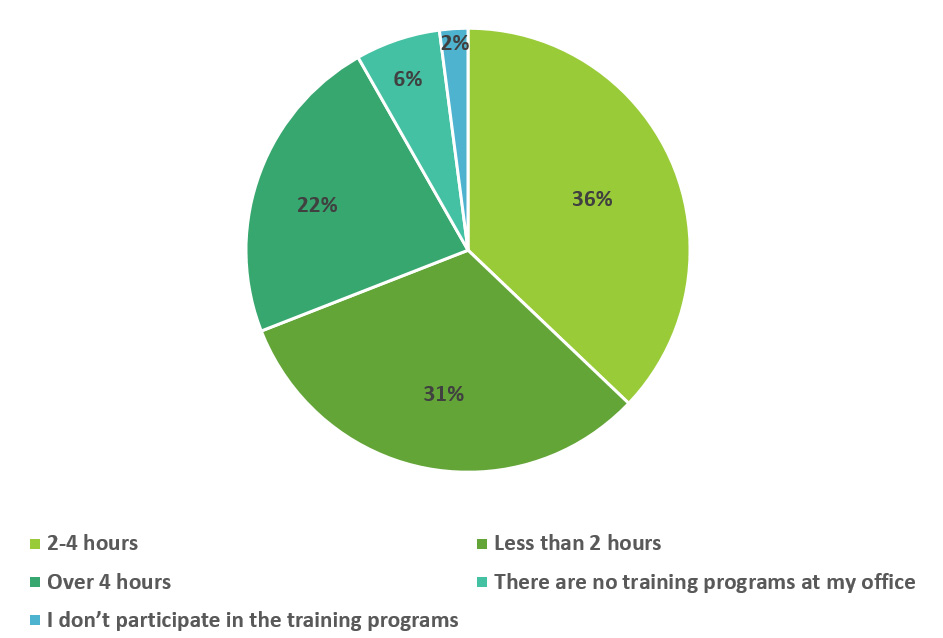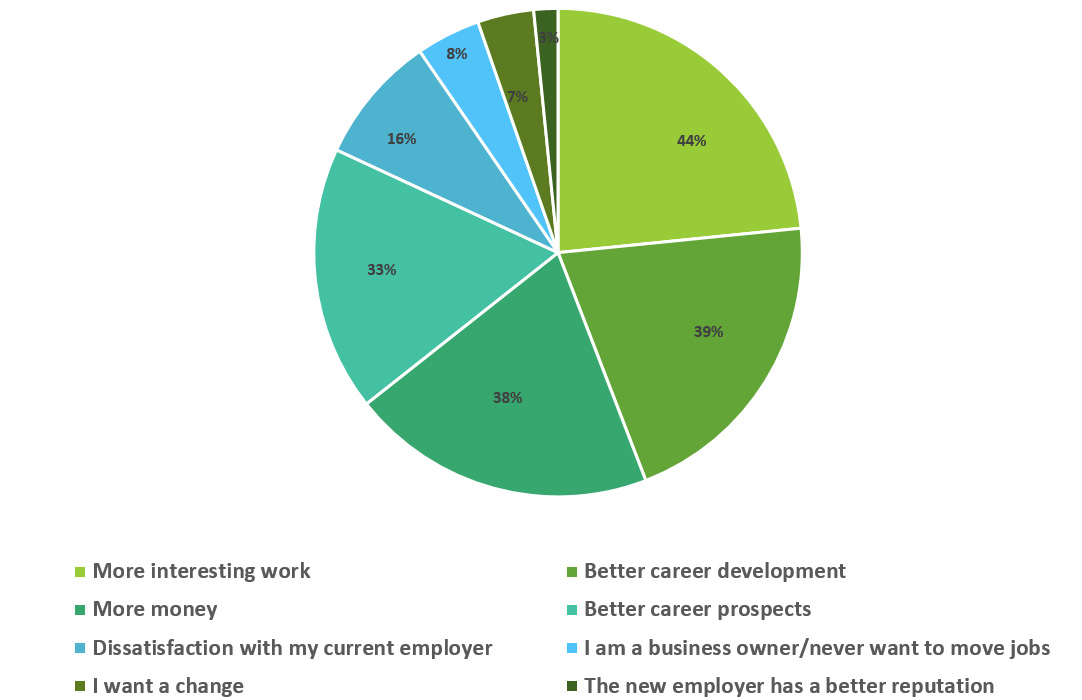PR Skills Audit: There is a shortage of PR professionals who can write in India
PR Insight
PRmoment India has just released a skills survey carried out in September 2013, conducted in partnership with Census wide. The survey covered over 81 in depth online interviews with PR practitioners across NCR, Mumbai, Bengaluru, Kolkata, Hyderabad and Chennai, both In-house communicators and agencies.
Skills that count
Commenting on the skill sets that matter to a PR professional, Gayatri Rath, Director of Corporate Communications and Citizenship for Microsoft in India, points out that: “Other than writing, the ability to understand business and contextualize communication plans with that understanding is really important. Sometimes communications professionals are not able to see the real business needs and tweak communications plans to address that specific need. As a result the business does not feel the impact of communications. In the process the communications’ team's credibility and effectiveness gets impacted.”
Apart from the ability to plan and organise PR campaigns, the survey shows that for 65.4 per cent of PR agencies and 64.2 per cent of in-house communicators writing was a top technical skill lacking among PR professionals today.
Why writing matters
Radhika Shapoorjee, South Asia President of IPAN H+K Strategies agrees that: “Unfortunately writing seems to be a dying skill in the workforce, and is something we’ve addressed this year with a focused editorial and writing skills training programme. However the reality is that good writing comes from good reading and good thinking. It’s like a muscle that you need to work every day in order to be as confident with the written as the spoken word.”
Alok Kumar Dash, Account Supervisor with a leading multinational PR agency in India says that given the nature of PR jobs in India, people need to have strong communication skills. Dash elaborates: “By communication, I don't mean just fluency in English but a clear command over the language – I personally find English vocabulary standards quite poor among most PR pros – backed by logical thinking."
"Secondly, people in this field need to be voracious readers – books, blogs, articles etc. Since most of the professionals work on multiple accounts, it is very important to have the habit of consuming as much information as possible, both online and offline. We never know where that story idea might come up.”
Planning and Organisation are key skill sets missing in PR professionals
Among the behaviour skills, planning and organisation topped the list. 72.70 per cent of in-house participants and 52.50 per cent of PR agencies felt that planning and organisation was a key behavioural skill set that was missing in professionals. This was followed by creativity and innovation at the work place. 59.10 per cent of in-house PR leaders felt that this was a missing quality among professionals today. 47.50 per cent of PR agencies said the same.
Radhika says that: “These basic planning skills are essential if the industry is to really achieve its potential, and I think could be emphasized more in the various academic courses on offer for the industry. For me, creativity comes back to an old issue – understanding the client, the business and the market and having enough outside influence and insight to bring to the table.”
Participants’ also felt that communication was another key skill that was lacking. 40.90 per cent of In-house communicators and 40.70 per cent of agencies surveyed felt that this was a key skill that is needed and missing among professionals today.
What skills are most lacking in PR?

Bhuvaneshwari Joshi, Corporate Communications Manager - Reliance Industries Limited, agrees that communication is a key skill required for PR professionals and one that is not easy to come by. Joshi says: “I recently heard Narendra Modi speech where he rightly said “You can find many excellent orators but it’s not easy to find a good communicator". However Joshi adds that along with communication: “Most importantly a PR professional needs to pay attention to personal branding, strategic thinking, building relationships and key engagement on social media personally to be successful professionally and be on top of their game to lead the way forward.”
What skills are the most important?
These responses echoed answers to what skills do respondents consider most important. Among the top skills that in-house communicators and agencies felt were most important included planning and organisation (72.70 per cent In-House and 61.0 per cent agencies) and Communication skills (72.70 per cent In-House and 79.70 per cent agencies). Communicators also felt that creativity and innovation (54.50 per cent In-House respondents and 59.30 per cent PR agencies respondents) team work (59.10 per cent In-House and 61.0 per cent PR agencies) were key desirable skills among professionals.
Discussing creativity, Alok Dash adds that: “PR pros need to be creative. While this is an aspect that is always a work-in-progress, PR pros need to combine their understanding of media with logical analysis, smart thinking and client requirements to come up with PR campaigns that look beyond media relations.”
Among the technical skills writing was once again a top desired skill with 81.8 per cent of In-house respondents and 79.70 per cent of agencies flagging this as a very important skill set. This was followed by media and press relations (72.70 per cent of In-house respondents and 91.50 per cent of agencies). This shows that while in-house agencies value writing as the top technical skills, for agencies it is the ability to interact with the press and media that is the top skill.
What skills are the most important in PR?

Limited Skills audit among PR professionals in India in spite of training programs being present at half the organisations surveyed
The PRmoment skills survey also shows that though 50 per cent of in house organisations surveyed and 55.90 per cent of agencies surveys had formal training programmes; 81.80 per cent of In-house respondents and 62.70 per cent of PR agencies said that they have not carried out any skill audit for their team in the last 12 months.The survey also shows that PR professionals spend between 2 and 4 hours only being mentored by their seniors. 27.30 per cent and 39.40 per cent of in-house communicators and agencies respectively, said that they spend only between 2 and 4 hours in mentoring their team.
How much time a month do you spend being trained?

Tanya Chopra, PR executive says: “In PR, what counts is your on the job training, more than your degrees. Hence it is very important that the senior management plans out training schedules for their executives. The PR organisations must conduct team briefings, coaching and external training courses.”
Some agencies say they are trying to do that. Radhika says that: “We’re rolling out a global programme of mentoring because providing that to our young stars makes a huge difference in their careers. At the same time we’re continuing to invest significant time and money in training – this year all our team members will go through a 2 day consultancy skills training programme.”
More interesting work, better career and money: Top reasons for In-house corporate communicators for switching jobs
While for in-house respondents (54.5 per cent) more interesting work was the top reason for changing jobs, followed by both career development and money at 31.80 per cent; for agencies career development (42.40 per cent) and money and more interesting work (40.70 per cent) were the most important reasons for changing jobs.
What are the dominant drivers in you changing jobs?

What additional skills matter in a PR professional?
Alok Dash: “PR pros need to be business-savvy (must possess a basic understanding of key business metrics like revenues, profits, EBITDA, share prices etc.) and well informed since this is a rare field where people in their early 20s get to interact with CEOs and other highly experienced corporate honchos on a daily basis as a part of client servicing. While this gives PR pros immense scope for learning, we also need to be well informed and smart in our interactions to command the respect of the client."
Methodology: The survey was conducted by Censuswide and included 81 in depth online interviews with PR practitioners across NCR, Mumbai, Bengaluru, Kolkata, Hyderabad and Chennai, covering both In-house communicators and agencies.
If you enjoyed this article, you can subscribe for free to our weekly event and subscriber alerts.
Featured

PR professionals share their views on journalists publicly calling them out on story pitches

Auto blogger renders unconditional apology to Value 360 for defamatory posts

Hottest Indian startups of 2020, Paytm, Dreams 11 lead the charge: Wizikey Report




